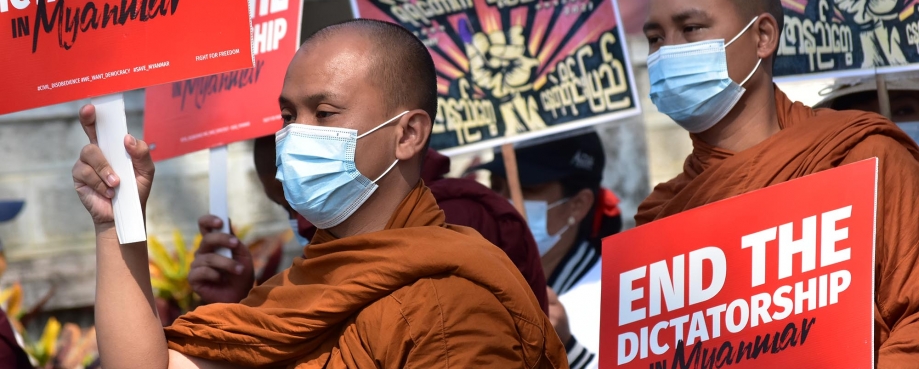
Thirteen months on from the military coup, there is compelling evidence that the situation in Myanmar continues to deteriorate.
On 25 March 2022, the International Labour Organization (ILO) established a Commission of Inquiry into the decline of workers' rights in Myanmar since the military coup of February 2021. ETI notes the gravity of such a decision taken by the ILO’s Governing Body. ETI recognises that a Commission of Inquiry is the ILO’s highest-level investigative procedure which is generally set up when a member state is accused of committing persistent and serious violations and has repeatedly failed to address them.
Unions report that the environment has become increasingly dangerous for them to operate in, have safe communications with their members and negotiate with employers and brand companies to settle workplace labour disputes. To date, 54 trade unionists and worker activists have been killed by the military and at least 279 trade union leaders and worker activists have been arrested. The State Administration Council (SAC) has banned 16 labour organisations from operating. ETI also notes that the Action, Collaboration, Transformation (ACT) Initiative, a global agreement between trade unions and brands to achieve living wages, withdrew from Myanmar in December 2021, as a result of its trade union partner, the Industrial Workers Federation of Myanmar (IWFM), stating that it could not operate freely in Myanmar under the current circumstances.
Within this context, The Myanmar Labour Alliance – including the CTUM and its affiliate, IWFM, with support from the ITUC, IndustriALL and other global union federations, have called on businesses to cease placing new orders and disinvest. This call is part and parcel of the call for comprehensive economic sanctions decided by the General Strike Coordination Body (GSCB) and 182 civil society organisations and trade unions from Myanmar.
In light of the evidence of the deteriorating situation, the decision of the ILO Governing Body in March 2022, and the impact on workers’ rights reported by trade unions and civil society organisations, ETI believes it is necessary to update its advice to corporate members sourcing from Myanmar.
In August 2021, we called on companies as a matter of urgency to reassess their presence in Myanmar, ensuring that such an assessment is based on the application of the UN Guiding Principles on Business and Human Rights (UNGPs). This is as important as ever, but given the developments indicated above we now advise that:
- Business refrain from making any additional investments in Myanmar at this time.
- Business continue to meaningfully engage with unions locally and internationally with respect to their presence in Myanmar.
We will continue to conduct an independent study as a matter of urgency which is examining the human rights implications of doing business in Myanmar in line with the UNGPs and OECD guidelines.
